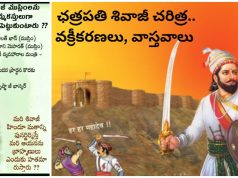For the past few months, a lively debate on nationalism has been resounding in the print and electronic media ever since its Leftist-liberal segments discovered a new national hero and iconoclast in comrade Kanhaiya, who seemed intent upon supporting every strand of separatist sentiment in the country. He was arrested but soon released under media pressure. Some senior lawyers and mediapersons said the slogans in the Jawaharlal Nehru University (JNU)—calling for the breakup of India and murder of Supreme Court Justices who sentenced Afzal Guru—were not sedition. They did not incite violence. Kanhaiya returned to triumphalism in JNU. Leftist professors and students soon held tutorials on nationalism that were broadcast all over the country. A nation state, they said, is the collectivity of its people. Nation states are constantly evolving. So people are free to come and go. Kashmir, thus, is free to walk out of this circus. So is Nagaland, Manipur, Mizoram. The Maoist supporters of JNU would like them to go. Where will this exodus end? What if the ghettos of Saharanpur, Meerut, Azamgarh, Hyderabad, parts of Kerala wish to secede tomorrow? So be it, said the Leftist tutorial.
What then is a nation? A throng of commuters? Steven Grosby, professor at Clemson University, wrote, “A nation is a territorial community of nativity. One is born into a nation… (it has) great extent of territory (and) also a relatively uniform culture that provides stability and continuation over time.” French scholar Ernest Renan wrote, “A nation implies a bounded, territorial community of customs and laws.” So a nation state is not just a collection of people (free to come and go), it is people plus a sharply defined territory.
We are Indians because we were born in the territory of India, to parents who were citizens of India. India is, therefore, our homeland. Barack Obama could become the US President because he was born on its territory (in Hawai). The Leftist assertion that territory has no role to play in defining a nation state is astonishing. Impermeable borders are a hard fact of life. Can the Leftists enter Pakistan or the US without passports and visas? The Indian Constitution enjoins upon its citizens the duty to respect and uphold the nation’s unity, integrity and sovereignty—concepts that the Leftists seem to hold in contempt.
The term nation, therefore, refers to both a land and its people. The nation is a social relation with both temporal depth and bounded territory. It persists over time and cannot be destroyed by walkouts. National consciousness is sustained by rituals, symbols (flag, emblem, anthem, parade) and a shared history. Parents transmit to their offsprings not only genes, but also cultural memes—the cultural inheritance from a distant past, their language, customs, religion etc. Citizenship, that is birth within its territory, is recognised as the primary criterion for the membership of a nation. Armies fight and die to defend the sacred concept that is territory and its people. You cannot carve out slices at will on the whims of an Umar Khalid or a Kanhaiya. Patriotism is the love that one has for one’s nation. It is not a lumpen trait.
Nation states emerged from the treaty of Westphalia in 1648. They had defined borders whose transgression could lead to war. They were likened (in the realist conception) to billiard balls that clashed against one another. The state had the monopoly of violence within its territory. It effectively disarmed the population and created armed forces to protect the state and its people.
No other nation has had the idea of its self-hood and identity so comprehensively destroyed as India’s was. Over two centuries years of colonial rule saw a concerted campaign to eradicate unity and destroy a pan-India identity. After the revolt of 1857, the British identified every fault line in India to divide and rule its people. They laid heavy emphasis on caste. John Risley held the first caste-based census in 1872 to fracture its people. They equally exploited creed and gave separate electorates to the Muslims, Christians, Sikhs and Dalits. India, they said, was never a nation state—just a cauldron of castes and creeds perennially at war with one another. It needed an external power to enforce the idea of “imperial justice” between the warring castes and creeds and ensure law and order. Indians, they said, were squabbling savages incapable of governing themselves. The idea of India as a nation was as preposterous as the idea of the equator as a basis of nationhood.
The leaders of the freedom struggle tried hard to forge a pan- India identity beyond caste and creed. Pity is that the pygmy politicians of post-Independence India have fallen back to the fault lines to create vote banks. In the process, they have weakened the idea of India. The current Communist cacophony over caste and ethnic fault lines seeks to openly break up the country. And to do this, they exploit the freedom of speech. We need a rational debate on this vital subject.
By Maj. Gen. (Retd) G D Bakshi
Courtesy: The New Indian Express














